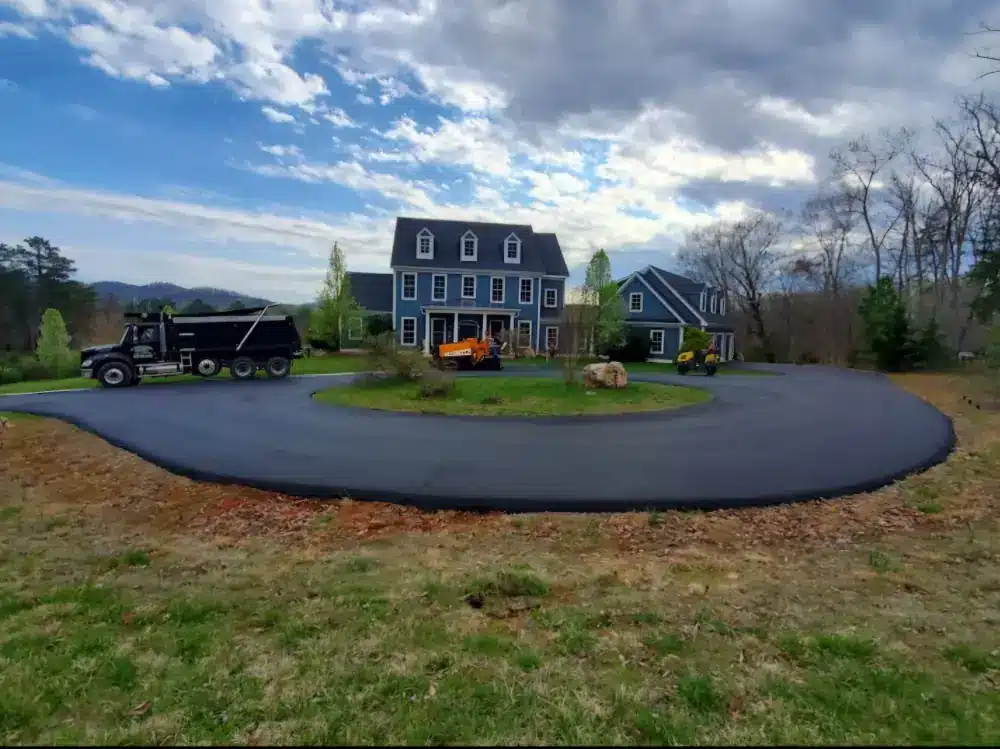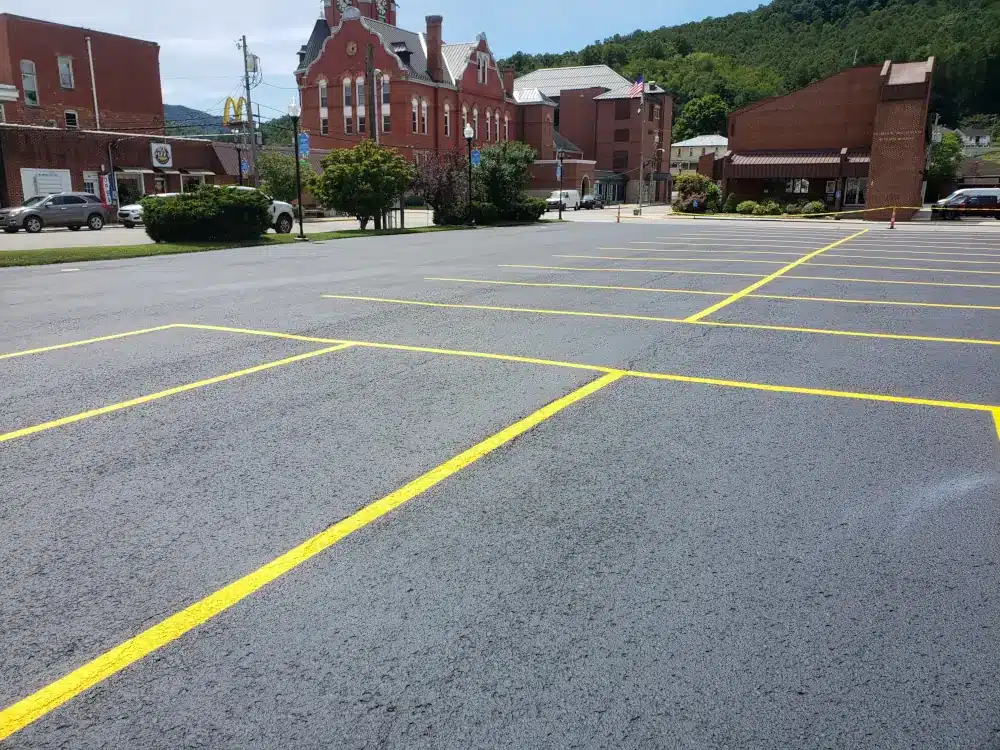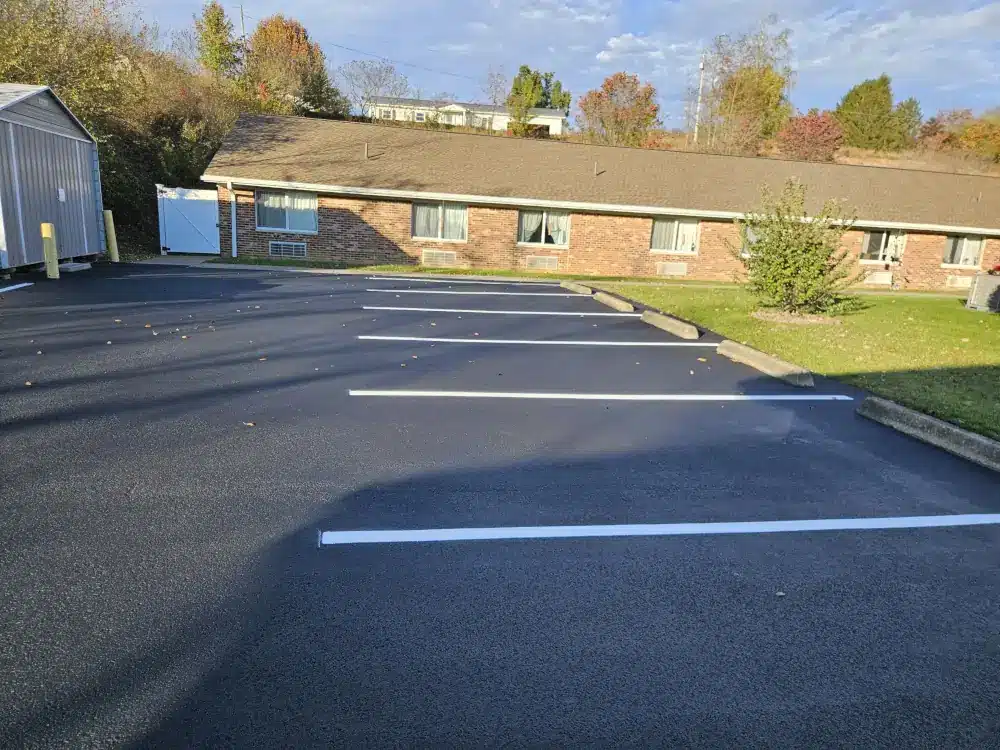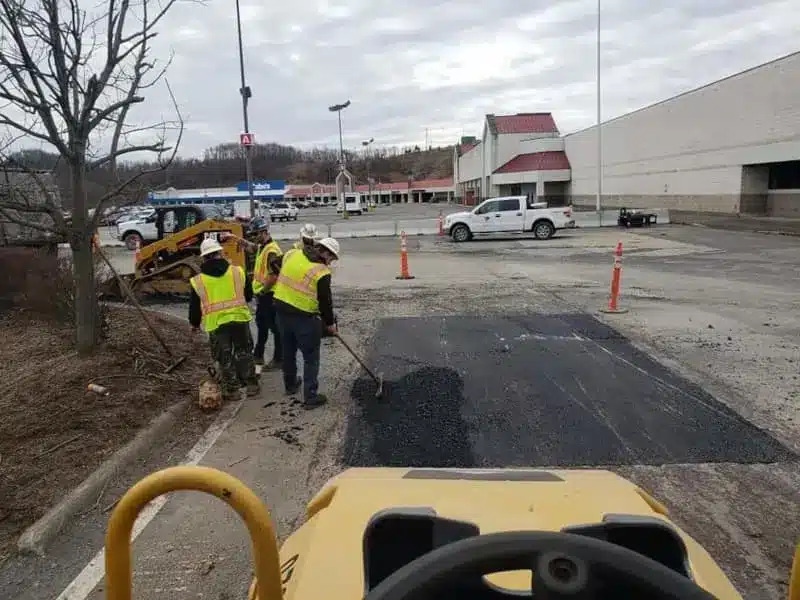Choosing the right material for your parking lot is a crucial decision that impacts cost, longevity, maintenance, and overall performance.
The right choice depends on factors like climate, usage, and budget. In this guide, we’ll break down five of the most common parking lot materials—helping you make an informed decision.
Asphalt Parking Lots
Asphalt is the most widely used material for commercial parking lots, offering a balance of affordability, durability, and ease of maintenance.
Its widespread popularity comes from its cost-effectiveness, quick installation, and ability to handle high traffic volumes. It provides a smooth, reliable surface that stands up well to the constant pressure of vehicle loads.
Additionally, its ability to be resurfaced rather than fully replaced makes it a cost-efficient long-term option. Businesses benefit from asphalt’s ability to be repaired quickly, minimizing disruptions.
With proper maintenance, including sealcoating and crack filling, asphalt can provide a long-lasting and aesthetically pleasing parking lot solution.
Concrete Parking Lots
Concrete is known for its strength and long lifespan, making it a reliable choice for high-traffic areas.
It is especially beneficial for smaller parking lots or locations that experience heavy loads, such as distribution centers where semi-trucks and heavy machinery are frequently in use.
The rigid surface structure of concrete prevents deformation under extreme weight, ensuring longevity in industrial and commercial applications.
Unlike asphalt, concrete is less likely to develop ruts under heavy loads, which can be seen when driving down older highways with noticeable depressions in the wheel paths.
Additionally, its ability to reflect heat makes it a great option for reducing surface temperatures in warm climates.
Gravel Parking Lots
Gravel is a budget-friendly option that works well for temporary or rural parking areas.
It is especially useful for construction yards, where heavy equipment and vehicles frequently move in and out.
Additionally, gravel is a great choice for low-use locations such as concert venues, fairgrounds, and overflow parking lots that do not require a permanent paved surface.
Its affordability and ease of installation make it an attractive solution for businesses looking for a cost-effective parking option without long-term commitments.
Tar & Chip (Chip Seal) Parking Lots
Tar and chip paving is a lesser-known alternative that combines asphalt and stone for a durable, textured surface.
It is a great choice for rural roads, driveways, and parking lots where cost-effectiveness and durability are key concerns.
This type of surface is particularly well-suited for areas that do not experience extremely high traffic volumes but still require a hard, weather-resistant surface.
Tar and chip parking lots work well for businesses in rustic or country settings, farm supply stores, and municipalities looking for a budget-friendly alternative to traditional asphalt.
Additionally, their natural appearance blends well with parks, campgrounds, and scenic locations.
Recycled Asphalt Parking Lots
Recycled asphalt is an eco-friendly and cost-effective alternative to traditional asphalt.
Made from reclaimed asphalt pavement (RAP), it provides a sturdy surface while reducing waste and reliance on new materials.
This option is ideal for businesses looking to minimize their environmental impact while still benefiting from the durability and performance of asphalt.
Which Material Is Right for Your Parking Lot?
Choosing the best material depends on your budget, maintenance expectations, and parking lot usage.
Asphalt remains a top choice for most businesses due to its affordability and easy maintenance, while concrete is ideal for long-term durability.
Gravel, tar & chip, and permeable pavers each serve unique needs based on project requirements.
If you’re looking for expert advice or a paving company in West Virginia, Elite Sealcoating can help. Contact us today to discuss your project and get a free estimate.




